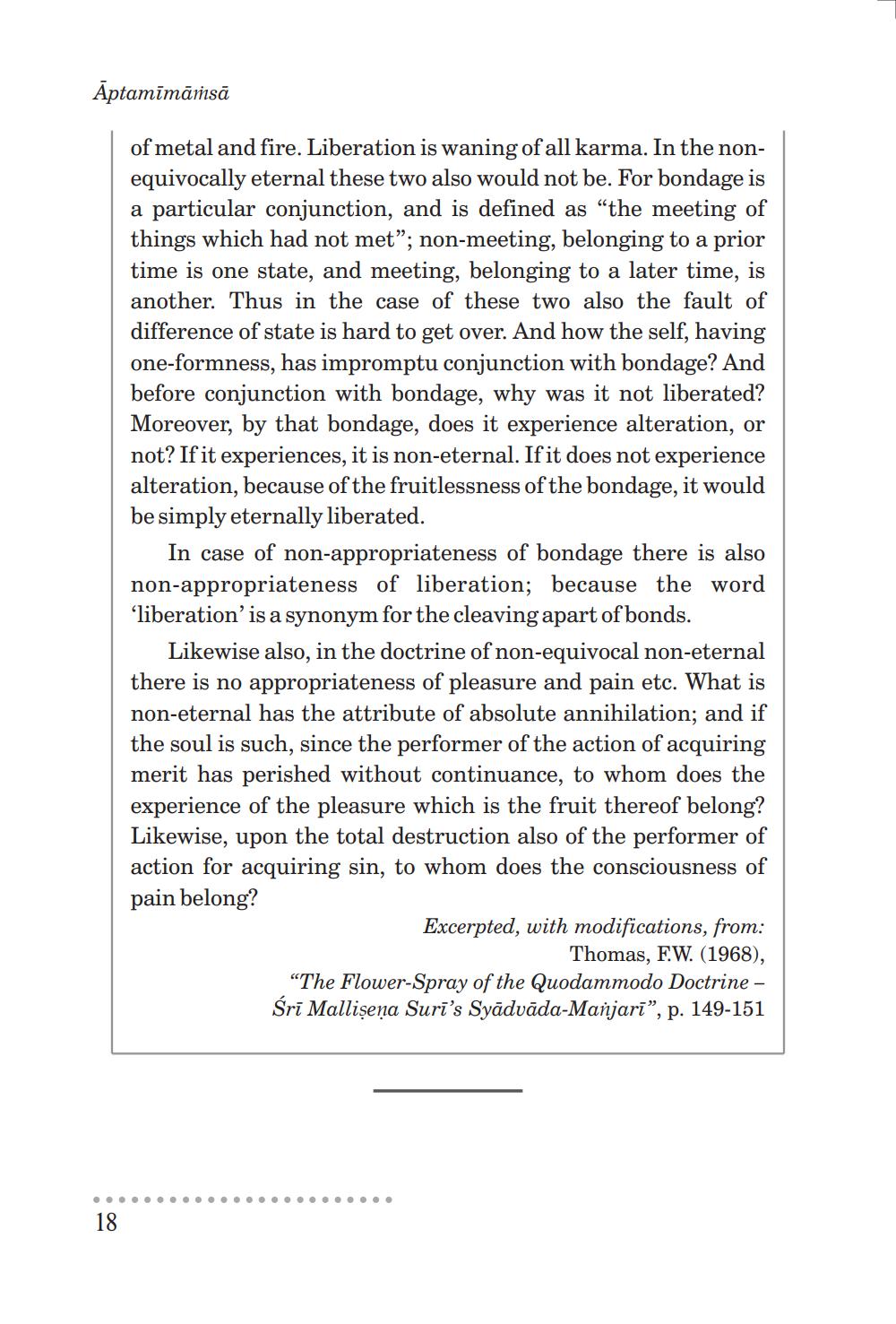________________
Āptamīmāmsā
of metal and fire. Liberation is waning of all karma. In the nonequivocally eternal these two also would not be. For bondage is a particular conjunction, and is defined as “the meeting of things which had not met”; non-meeting, belonging to a prior time is one state, and meeting, belonging to a later time, is another. Thus in the case of these two also the fault of difference of state is hard to get over. And how the self, having one-formness, has impromptu conjunction with bondage? And before conjunction with bondage, why was it not liberated? Moreover, by that bondage, does it experience alteration, or not? If it experiences, it is non-eternal. If it does not experience alteration, because of the fruitlessness of the bondage, it would be simply eternally liberated.
In case of non-appropriateness of bondage there is also non-appropriateness of liberation; because the word ‘liberation' is a synonym for the cleaving apart of bonds.
Likewise also, in the doctrine of non-equivocal non-eternal there is no appropriateness of pleasure and pain etc. What is non-eternal has the attribute of absolute annihilation; and if the soul is such, since the performer of the action of acquiring merit has perished without continuance, to whom does the experience of the pleasure which is the fruit thereof belong? Likewise, upon the total destruction also of the performer of action for acquiring sin, to whom does the consciousness of pain belong?
Excerpted, with modifications, from:
Thomas, FW. (1968), "The Flower-Spray of the Quodammodo Doctrine - Śrī Mallişeņa Suri's Syādvāda-Manjarī”, p. 149-151
18




